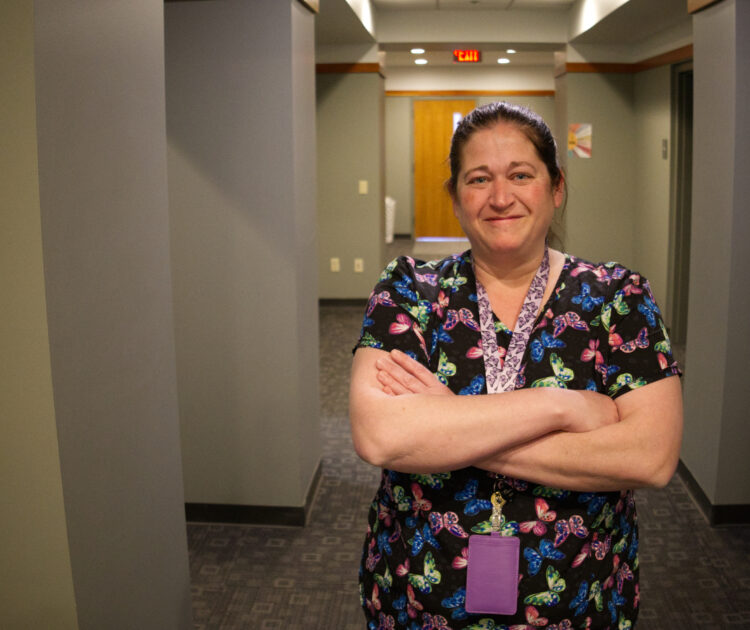Feeling anxious is a normal part of life. It can help us stay alert and focused, but when anxiety becomes frequent or overwhelming, it can interfere with daily life. If your palms sweat, your heart races or you feel a tightness in your chest, anxiety may be taking hold. The good news? You can regain control using simple, effective techniques.
1. Focus Your Mind
Practicing mindfulness can help shift your attention away from anxious thoughts. Try these techniques:
- Engage your senses. Bring your attention to the present by concentrating on what you see, hear, taste, smell or touch. Try to focus on each sense individually before moving on to the next.
- Visualize a relaxing place. Picture yourself on a beach, in a peaceful forest or anywhere that calms you. If you’re having trouble, try playing some relaxing sounds or music to help you visualize.
- Use aromatherapy. Scents like lavender or chamomile can activate pleasure centers in your brain, helping to ease anxiety.
- Practice deep breathing. Try breathing deeply into your belly instead of your chest. Place your hand on your belly and concentrate on its rise and fall while you breathe in and out.
2. Get Moving
Physical activity can release stress-relieving brain chemicals and reduce anxious energy. Whether it’s a brisk walk, a jog up the stairs or stretching exercises, movement can help redirect your focus away from anxiety.
3. Play Games
Try the 5-4-3-2-1 grounding technique to help bring you back to the present:
- 5 things you see
- 4 things you feel
- 3 things you hear
- 2 things you smell
- 1 thing you taste
This can help you slow down and distract you from your anxiety. A variation on this technique is to describe things around you out loud, such as a picture on a wall (“A blue sky hangs above an ice-covered mountain top”). Another way to keep your mind busy is to play your own game of Boggle, or similar type of word game. For example, if there’s a sign ahead, think of words you can create with any letters you see. In the process, you may forget about your anxiety.
4. Let Anxiety Pass
Don’t try to fight it, fix it or judge yourself for experiencing it. Instead, notice how you feel and use that information to become more familiar with the onset of symptoms and make them less threatening. Try separating your thoughts about yourself from your symptoms. For instance, you can say to yourself, “It’s not me, it’s my anxiety.”
5. Practice Gratitude
Expressing gratitude can trigger the release of oxytocin and serotonin—brain chemicals that promote feelings of happiness. When anxiety strikes, think of three things you’re grateful for. This simple act can help shift your mindset from fear to appreciation.
6. Use Comfort Objects
Whether it’s rough, hard, soft or smooth, the texture of something can distract you from your anxiety. Touch an item around you, such as a desk you’re sitting in front of or the arms of a chair. Note how they feel. Wear something, such as a necklace or a rubber band around your wrist to touch whenever you experience disturbing thoughts. You can also carry a “comfort object” small enough to carry around, like a lucky rabbit’s foot, a rubber ball or something else that soothes you.
7. Find What Works for You
Managing anxiety is personal. Some people find relief in meditation, while others benefit from journaling, listening to music or engaging in a creative activity. Experiment with different methods and use what feels most effective for you.
When to Seek Professional Help
If anxiety becomes overwhelming and disrupts your daily life, professional support can help. Therapy and medication are effective treatments for anxiety disorders. You don’t have to manage it alone.
To speak with a counselor, contact us today. We also offer tele-mental health services. For immediate support, call our 24-hour Crisis Hotline: 518-483-3261.
Frequently Asked Questions (FAQ)
What causes anxiety?
Anxiety can be triggered by stress, genetics, brain chemistry, trauma or medical conditions. It can also occur without a clear cause.
How do I know if I have an anxiety disorder?
If anxiety is persistent, excessive and interferes with your daily life, you may have an anxiety disorder. Symptoms include intense worry, restlessness, difficulty concentrating and physical symptoms like rapid heartbeat or shortness of breath.
Can anxiety go away on its own?
Mild anxiety may resolve with lifestyle changes and stress management techniques. However, chronic or severe anxiety often requires professional treatment.
What are the best ways to relieve anxiety quickly?
Deep breathing, grounding techniques, physical movement and visualization can provide quick relief. Long-term strategies like therapy and medication may also help.
When should I seek professional help for anxiety?
If anxiety is overwhelming, persistent or interfering with your ability to function, seeking help from a mental health professional is a good step. Therapy, medication and coping strategies can significantly improve your well-being.
By taking small steps, you can manage anxiety and improve your quality of life. You’re not alone, and support is available when you need it. Citizen Advocates offers mental health and addiction treatment services at our clinics and behavioral health urgent care centers across Northern New York. Click here to find the clinic nearest you.


 Previous Post
Previous Post


